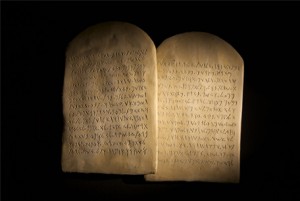Genesis 1. God, the master storyteller of truth that your soul needs. From a beginning of beginnings of beginnings to a particular love-fueled purpose behind His creation story: redemption.
This series is related to a spiritual call (started in the early 90s) for me to walk a bridge—from the Judaic camp reaching out to the Messianic/Christian camp and then vice versa—crisscrossing it, realizing and later sharing who and what the real bridge is. Walk with me to discover God’s revelations and passionate plan for our souls.
© desireofmysoul.faith (.com & .org) & SoulBreaths.com. All rights reserved.
READING TIME: 3 MINUTES.
INTRODUCTION TO SERIES
Like any good story, it’s best to start at the beginning. The beginning moment that will lead to or expose a protagonist’s unmet desire. But with God’s masterful nonfiction storytelling, it’s not always that simple.
The sheer epic size and generational expanse of His story (the Bible) may appear to be a maximal approach. But in reality, it’s minimalistic, razor-focused on a single, eternally driven thread.
We read about what was, what is, and what is to come. But the exactness of time remains hidden. He talks of times yet defies time, because He created time and exists beyond this physical dimension . . . despite intersecting and embodying it.
Through it all, He is the ever-present, omniscient “character” in His unfolding story.
As we take our first steps along God’s story arc . . .
1. Part 1: We’ll explore the intent behind God’s creation process, particularly the “for the sake of” link that leads us to even more.
2. Part 2: We’ll peer into God’s intro line using a more wide-angled lens, like when a film moves in for an intimate closeup. And there’s an optional sidebar post to pause and consider His many unfolding “beginnings” examples.
3. Part 3a and Part 3b: We’ll continue the story dig and consider some compelling connections between the Genesis 1 in the Tanakh (Jewish Bible/”Old Testament”) and the New Testament.
GENESIS 1:1 INTENT
It’s God’s opening line that gets us, capturing, enticing, pulling us. Those famous first words beg to be unraveled.
We sense that they’re the gateway to something immeasurably higher, deeper, beyond ourselves.
Rashi, the famed biblical and Talmudic commentator from the Middle Ages, said that those initial [Hebrew] words of Genesis scream for explanation. (Okay, my word choice, but he did say it “calls aloud” for explanation.)
Homiletically—per commentary notes in the Stone Edition of The Chumash (an orthodox commentary on the first five books of the Bible)—the first word of this creation process b’reshit can be stated as . . .
“The world was created for the sake of [for the things that are called] beginnings.”
Stone’s commentary equates that to “God brought the world into being for the sake of things that are of such basic importance that the Torah calls them reishit (ראשית), meaning first or beginning.”
That is, the world was created for the sake of bringing forth Torah (the Law).
But that for-the-sake-of-the-Law beginning unleashes two other critical “beginnings”:
(1) The Law reveals the basics, the reflections, of what is good in God’s eyes while exposing the beginnings of humanity’s self-desired nature .
A desire that from the get-go will fall short of His righteousness, His holiness—and launch a devastating spiritual rift, a broken bridge, between God and humanity. Because nothing is the same after the Garden of Eden rebellion.
(2) But even before the creation process, the impending God-humanity chasm would ache for restoration and grace .
So in those beginnings within beginnings, God brings forth another for-the-sake-of layer that trumps all others.
An indescribable love-move created for the sake of something eternally driven.
The world was created for REDEMPTION—hands down, God’s foundational story thread throughout the Bible. The undeniable link between His two intrinsic story lines, the Judaic and the Messianic/Christian.
Genesis and Revelation. The first and the last books of the Bible. Everything happening in between echoes their prime story line. But Revelation isn’t the end of God’s story . . . it actually lifts the veil on yet another of God’s future beginnings.

HIS WORD BREAKS FORTH
God created (ex nihilo) this dimension—this beginning of beginnings—with a WORD. Per rabbinical teaching, the WORD God spoke in the creative process performed the creation.
It begins with God’s unrivaled, unimaginable might and presence hovering over the “astonishingly empty with darkness.”
The initial focus is an earth that is “desolate and void” (Hebrew tohu va-vohu, תֹ֨הוּ֙ וָבֹ֔הוּ) with darkness on the “face of the murmuring deep,” a “wonder and astonishment”—that would leave us aghast at the sheer emptiness (bohu) of it , per author Avivah Gottlieb Zornberg (The Murmuring Deep, quoting Rashi and author Stephen Frosh).
GOD’S BOUNDLESS POWER—reflected in the peals of thunder, lightning flashes, and deep rumblings around His throne (“the life source of the universe” as Dr. Ed Hindson once called it)—and the immeasurable weight of His glory move over the chaotic, the tehom, Hebrew for depths, subterranean waters, and even suggesting a deep soul-to-soul groaning.
It possibly is what Zornberg’s book suggests: God is cutting through the chaotic, the deep murmuring—the “primal noise“—to form a “creative silence,” a clearing for His creation WORD to come forth.
We witness a similar process when all of creation groans under the chaotic darkness birthed from sin.
At the appointed time, God again arises, His presence again hovering but now over the soul’s darkness, its chaos, its captivity, breaking through with redemption—His Word—silencing our noisy, subterranean murmuring, our aching soul—deep calling unto deep—tehom to tehom, תְּהֽוֹם־אֶל־תְּה֣וֹם ק֖וֹרֵא (Psalm 42).
But what or who is that WORD?
Explore more in this Beginnings series, delving beneath Genesis 1:1 and the what/who WORD question.
READ THIS NEXT: Beginnings within Beginnings [Part 2]
RESOURCES
(1) The Stone Edition Chumash, the ArtScroll, Series, published by Messiah Publications, ltd, September 2005 edition, Parashas Bereishis/Genesis, p 3
(2) Sefaria.org
(3) The Murmuring Deep, Avivah Gottlieb Zornberg. Schocken Books, New York, 2009.
(4) Moshe Weinfeld quote: TheTorah.com
PHOTO CREDITS for this three-part Beginnings series:
Clouds/Light by Marcus Dall Col on Unsplash.com
Steam Punk Minister w/Bible by Nathan Bingle on Unsplash.com
Steps with child by Jukan Tateisi on Unsplash.com
Follow the Line on asphalt photo by Vidar Nordli-Mathisen on Unsplash.com
Woman in jeans with Bible by Priscilla Du Preez on Unsplash.com





